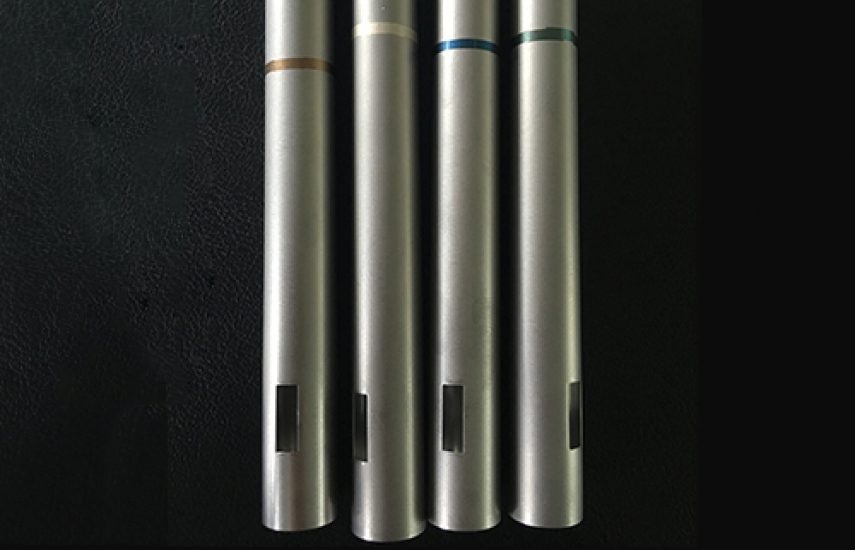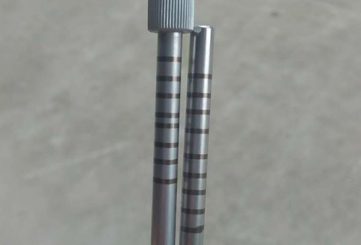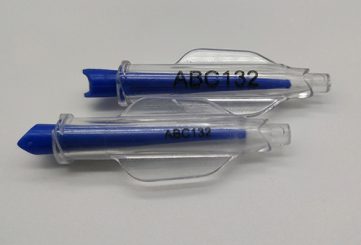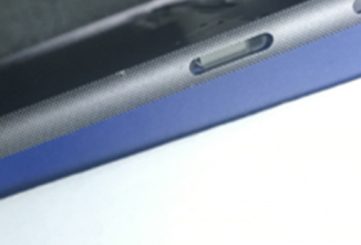Laparoscopic Tube Color Marking
Laparoscopic Tube Color Marking – high-precision laser color marking for surgical tubes
Laparoscopic Tube Color Marking is an advanced laser process developed for applying durable, biocompatible color markings onto laparoscopic tubes. The process uses precise laser parameters to generate distinct, repeatable color codes without the use of inks, coatings, or chemicals. The result is a permanent, hygienic marking solution that enhances surgical workflow by enabling quick identification, traceability, and differentiation of laparoscopic instruments, while maintaining surface integrity and sterilization compatibility.
Key features:
- Non-contact laser marking: precise and clean marking with no risk of contamination
- Biocompatible markings: safe for surgical applications, resistant to sterilization and cleaning cycles
- Color variety: ability to produce multiple stable colors through laser parameter adjustments
- High repeatability: consistent marking quality across large batches
- No chemicals or consumables: environmentally friendly and maintenance-free process
Certification and Standards:
Produced under ISO9001 and ISO13485 certified systems; the process complies with international medical device regulations, ensuring biocompatibility, traceability, and long-term durability of markings.
Stainless Steel SUS304:
Medical-grade SUS304 stainless steel (austenitic chromium-nickel alloy), offering excellent corrosion resistance and mechanical properties.
- Biocompatibility: Low risk of allergic reactions or toxicity, ideal for direct tissue contact in medical procedures.
- Mechanical Properties: High tensile strength (approximately 505 MPa) and elongation (up to 40%), providing flexibility without brittleness.
- Surface Finish: Laser-machined for smooth, burr-free edges, reducing the potential for tissue trauma or contamination.
- Thermal Stability: Maintains integrity across a wide temperature range, suitable for sterilization processes like autoclaving.
Nickel-Titanium alloy:
Nitinol (NiTi), a nickel-titanium alloy, is renowned for its superelasticity and shape memory, making it a game-changer in medical applications. With a tensile strength of up to 1200 MPa and elastic modulus of 40–75 GPa, nitinol excels in demanding environments.
Titanium alloys:
Titanium Alloys are medical-grade materials prized for their high strength-to-weight ratio, excellent corrosion resistance, and superior biocompatibility. With tensile strength ranging from 900–1200 MPa and good ductility, they provide durability and flexibility for demanding medical applications. Their bio-inert properties make them ideal for implants and instruments requiring direct tissue contact. Laser-machined surfaces ensure smooth, burr-free finishes, minimizing tissue irritation in sensitive procedures.
- Laparoscopic tubes requiring color coding for identification
- Surgical instruments where quick recognition is critical
- Medical devices needing permanent, biocompatible markings
- Marking type: laser-induced color marking
- Surface integrity: no coatings, no chemicals, no structural damage
- Color options: multiple stable colors via laser parameter control
- Durability: resistant to sterilization, abrasion, and cleaning
- Compliance: ISO9001, ISO13485, medical device regulations





